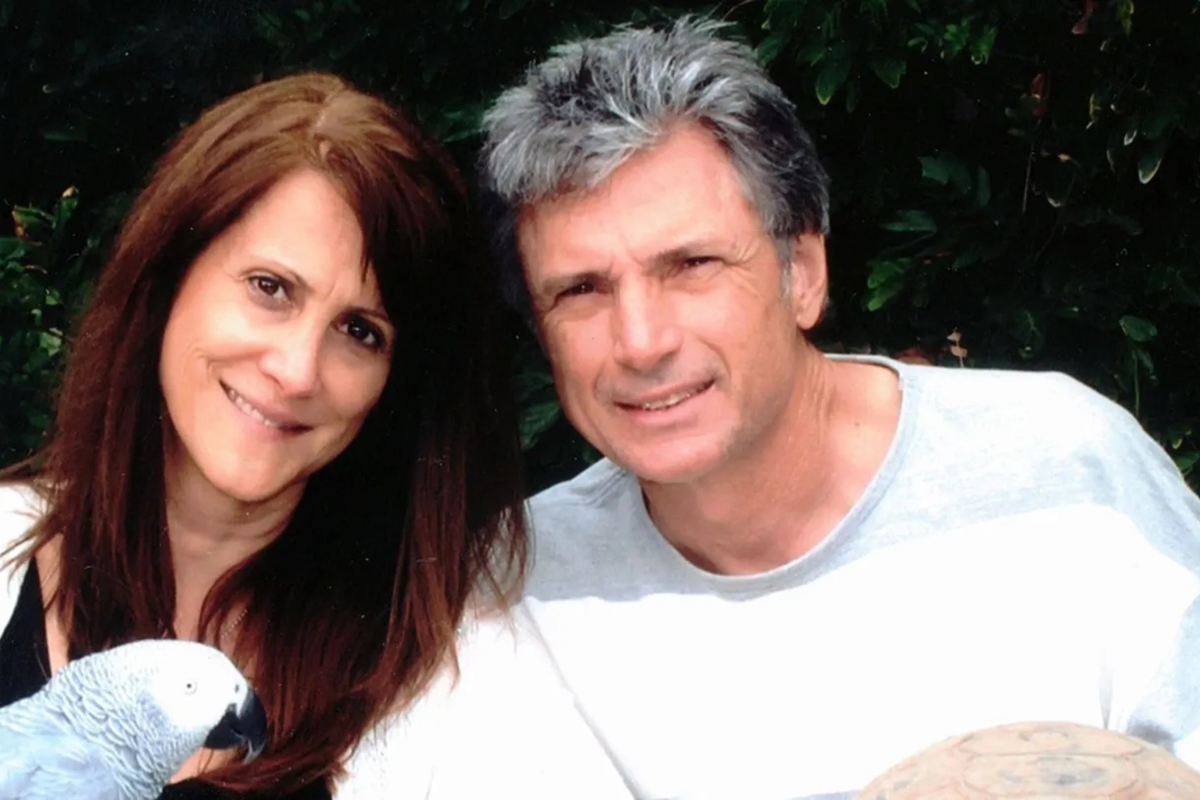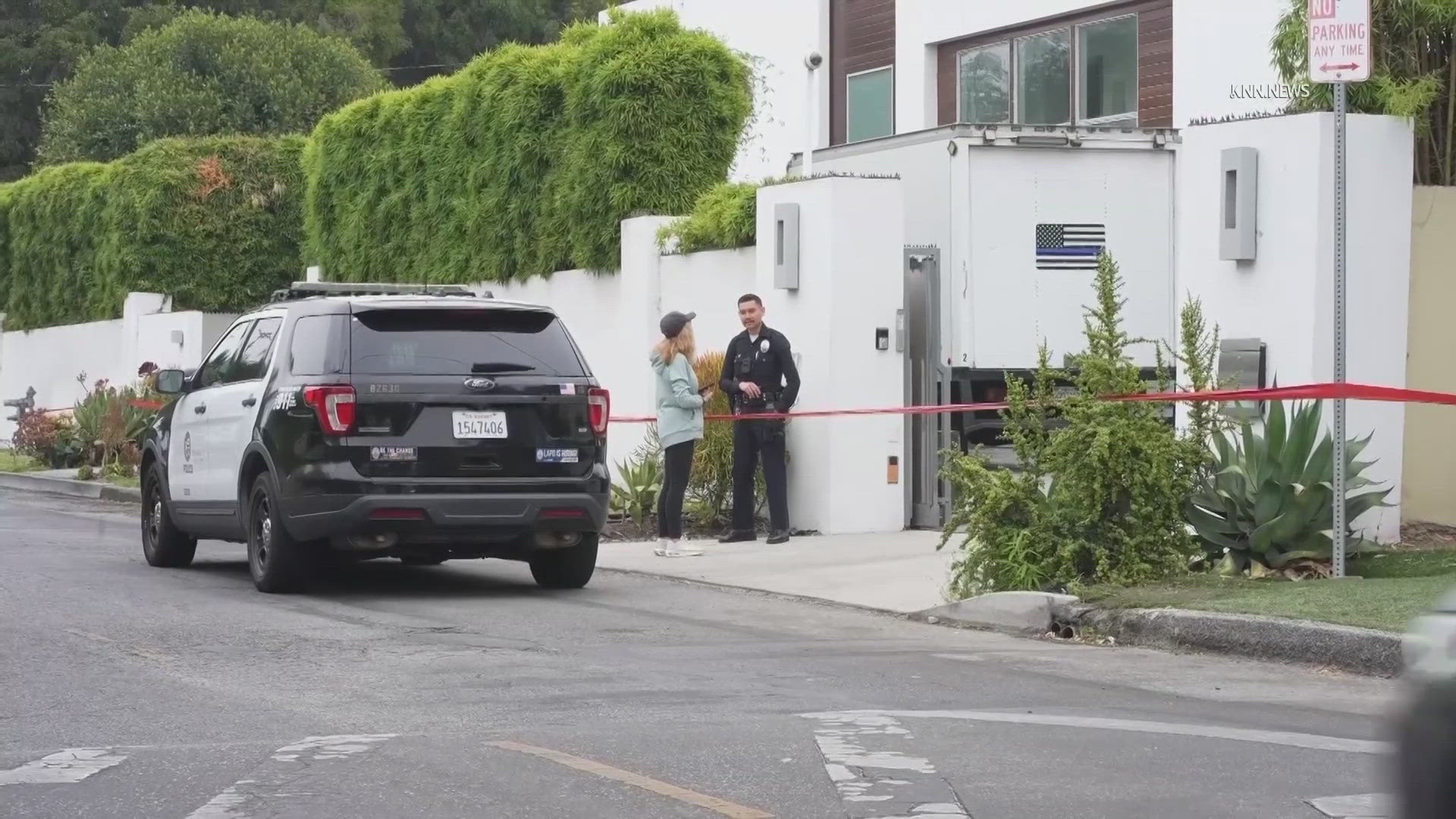
The brutal and shocking deaths of Robin Kaye, a longtime music supervisor for the iconic "American Idol," and her husband Thomas Deluca have not only left the entertainment world in mourning but have also sparked a wave of controversy surrounding the actions—or inactions—of the Los Angeles Police Department (LAPD). As more details emerge, many are questioning whether law enforcement missed glaring signs that could have prevented the tragedy, raising unsettling concerns about the couple's final days and the true nature of the crime.
Robin Kaye and her husband were found dead in their fortified Encino home on White Oak Avenue after officers responded to a wellness check early Monday morning. Both victims, aged 70, had been shot multiple times and were discovered in separate rooms of the house.
Their deaths stunned the entertainment industry, where Kaye was not just a behind-the-scenes figure but a beloved cornerstone of "American Idol" since 2009. Her contributions to shaping the show's musical direction were widely respected, and news of her passing sent waves of grief through her colleagues and fans alike.

But behind the mourning lies a tangled narrative that is beginning to unfold, one marked by missed opportunities and troubling questions about police response. On July 10, just five days before the couple's bodies were discovered, LAPD received a radio call reporting a possible burglary suspect on the same property.
Arriving officers assessed the residence but did not enter. The official explanation given was that the property was "highly fortified," making entry difficult without explicit evidence of a crime or consent from the residents. Lieutenant Guy Golan of the LAPD explained that a flyover with an airship was conducted, but no visible signs of forced entry or trouble were detected.
However, this explanation has not satisfied critics or residents of the Encino neighborhood. A CBS News analysis of LAPD’s "calls for service" revealed that the West Valley district, where Kaye and Deluca lived, had seen an unusual spike in suspected burglary calls during July—four in total, with three consecutive days of activity on July 9, 10, and 11.
While police have suggested that the murders were a "random attack," the frequency of incidents within such a narrow timeframe has led some to speculate whether a pattern of escalating criminal activity was overlooked.

Moreover, questions are being raised about the nature of the "fortification" of the property. Guy Cohen, owner of SecureIT Homes, disclosed that Kaye and Deluca had reached out to his company in May following a separate break-in attempt.
This suggests that the couple was not only aware of security threats but actively seeking to reinforce their safety—a detail that paints their final months as a period of heightened fear and vulnerability.
Adding to the complexity of the case, the suspect, 22-year-old Raymond Boodarian, was ultimately identified and arrested through a combination of surveillance footage and facial recognition software, thanks to the efforts of LAPD detectives and the FBI Fugitive Task Force.
Police allege that Boodarian gained access to the property by hopping a fence and entering through an unlocked door. They theorize that Kaye and Deluca returned home to find Boodarian inside, leading to a deadly confrontation. He reportedly fled on foot after the shootings.

Yet, with such advanced security measures in place, many are struggling to reconcile how Boodarian managed to infiltrate the residence so easily. The absence of forced entry raises suspicions that either the security systems were bypassed, or that someone with knowledge of the property’s defenses could have provided guidance. The idea of an opportunistic intruder has not satisfied those who see a deeper conspiracy beneath the surface.
There is also the troubling matter of the July 10 call. If a neighbor reported suspicious activity then, was it connected to Boodarian's eventual entry, or could it have been a separate reconnaissance mission?
LAPD has not clarified whether Boodarian was the individual spotted that day or if others might have been involved in surveilling the property. The idea that police encountered potential danger but walked away without further investigation has left the public uneasy, particularly in a case that ended so horrifically.
Critics of the LAPD's handling of the situation argue that the "highly fortified" excuse has become a deflection from accountability. Jim Zourek, a 23-year veteran of LAPD and Operations Director at Protector, emphasized that without direct evidence of a crime, police are often constrained from forcibly entering private property.
Yet, in hindsight, many believe that more should have been done, especially with the clear escalation of burglary attempts in the area.

Lieutenant Golan has maintained that all evidence still points to a random attack, disconnected from any larger criminal network or series of burglaries. "As scary as it sounds, it does appear to be a random attack," Golan said in a statement to CBS News. "It just appears to be a very odd and scary random event." Nevertheless, such statements have done little to quell suspicions that more sinister forces could be at play.
Some neighbors and industry insiders are even beginning to entertain conspiracy theories, especially given Kaye's high-profile position within "American Idol." Was the murder truly random, or was it a cover for something more calculated? Kaye’s role within a multi-billion-dollar entertainment industry might have exposed her to unseen risks, rivalries, or knowledge best kept hidden.
These speculations remain unproven but underscore the public’s skepticism surrounding the investigation.
Meanwhile, Boodarian remains behind bars without bail, charged on suspicion of murder. His motivations, background, and whether he acted alone or under someone’s direction remain key questions that the LAPD and FBI have yet to fully answer.
The use of facial recognition technology to apprehend him might have closed one chapter of the investigation, but the book on how Kaye and Deluca died—and whether their deaths could have been prevented—is far from closed.
As friends, family, and fans mourn the loss of Robin Kaye and Thomas Deluca, the looming question persists: could they still be alive if the July 10 call had been taken more seriously? Or is this yet another case where tragedy exposes the slow, flawed mechanisms of law enforcement in the face of real danger?
The public demands answers. But for now, the haunting truth of what really happened inside that "highly fortified" home remains shrouded in mystery, grief, and an uncomfortable sense that justice may still be incomplete.



